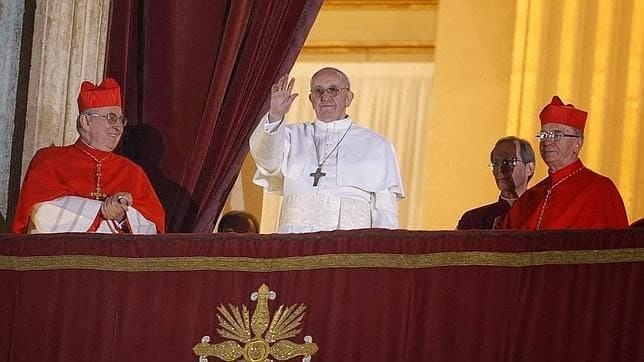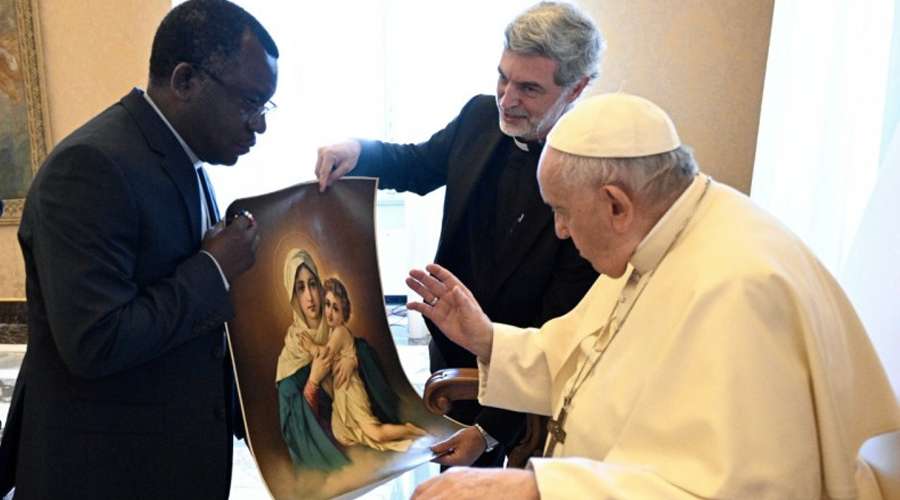It was 2013 and the Church was in turmoil due to the election of a new Pope. The Argentine Jorge Mario Bergoglio was among the candidates, but he had a strategy when he arrived in Rome that year: “I have planned a strategy so that I won’t be elected,” he jokingly tells the Schoenstatt Fathers. “I will enter the Conclave Hall hunched over, with a cane. The other cardinals will say: let’s not vote for this old man.”
The strategy did not work and on March 13, 2023, the 10 years of Pope Francis’ pontificate were completed. A period marked by bold statements such as “culture of encounter”, “tenderness revolution”, “synodality”, “Church on the move” and many other terms, which have been translated, much more than in words, into tangible attitudes.
The new Pope must be like this: the 4 key characteristics according to Francis
When he landed in Rome, Bergoglio had in mind the profile of the priest and leader that the Church needed:
“First, he must be a man of prayer, a man united to God. Second, he must be totally convinced that the head of the Church is not the Pope, but Jesus Christ, and he must repeat day and night: ‘The head of the Church is Jesus Christ, not the Pope. Thirdly, he must be a bishop who seeks unity, a bishop who is simple, close to the people, tender. Someone who is very willing to serve. And fourthly, he must have the courage to get rid of the filth that has been piling up in the Vatican”.
Without knowing it, he himself would have to adapt to this profile, although he already had many of these characteristics in himself. Thus these ten years have passed, under struggles and conquests, accomplishments and dreams, and above all, under the direction of the Holy Spirit.
Father Alexandre Awi, coordinator of the International Presidency of the Schoenstatt Movement, worked closely with the Pope for several years, five of them directly in the Vatican, and summarizes the Pontificate from his point of view: “It has been a great renewal for the Church, an opportunity to relive the spirit of the Second Vatican Council. It has placed major emphasis on a Church on the move, a missionary Church. I would say that the Pontificate of Pope Francis is the implementation of the spirit of the Aparecida Conference for the whole universal Church” .
A global and inclusive, universal and synodal pontificate

Ecclesiology researcher Father Stan Chu Ilo states, “When Pope Francis was introduced in 2013, I was working as an African expert on global Catholicism for a Canadian television network. I was surprised when the new Pope was introduced to the world live, because I had no biographical information about him. So I started making a list of things we African Catholics wanted from the new Pope. Among other things, a decentralized and decolonized Catholicism, capable of enabling local Church leaders to address local challenges using their own cultural and spiritual resources. There was also an urgent need to give African Catholics more seats at the decision-making table of the global Church.”
Looking back today, Father Stan acknowledges the positive steps the Church has taken towards those dreams: “A decade later, based on my work as a scholar on Catholicism, I would say that most Catholics know and love Pope Francis. They also see a strong bond between his message and their priorities, in their hopes and dreams for a better Church and a reconciled world.”
Schoenstatt and a look to the future

In view of these ten years that have passed, the Schoenstatt Movement is grateful for the paternity and closeness of the Holy Father. There have been several encounters with the communities of the Movement, especially during the celebration of the centenary of the Covenant of Love in 2014.
For Father Alexandre, Schoenstatt has achieved tangible steps in the development of a missionary and apostolic Church, as envisioned by the Pope, especially in the area of the family and the youth. And there is still much to be accomplished, in unity and harmony with the Holy Father.
“I also believe that a Marian Church has a lot to do with Pope Francis’ style. Although the Pope does not explicitly say so, his Marian attitude also reflects on the Church’s mission, a merciful Church, a Church that is a mother, a Church that is capable of welcoming, that embraces before judging, that truly seeks to live the tenderness revolution, in the words of the Pope. This is also very characteristic of a Marian charism, of a Marian Movement like ours. In this sense, we can continue to contribute”.
Source: https://schoenstatt.org.br/
